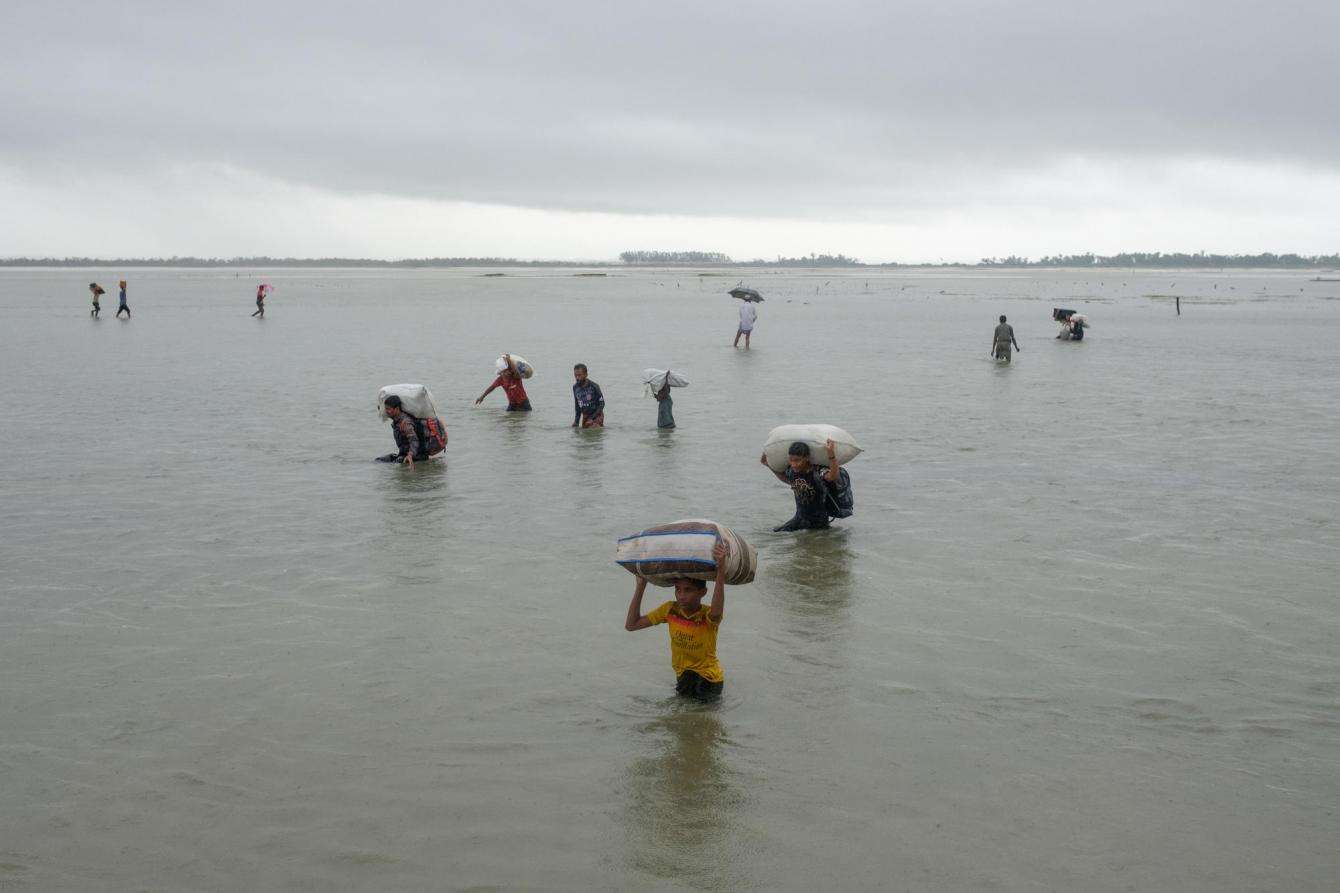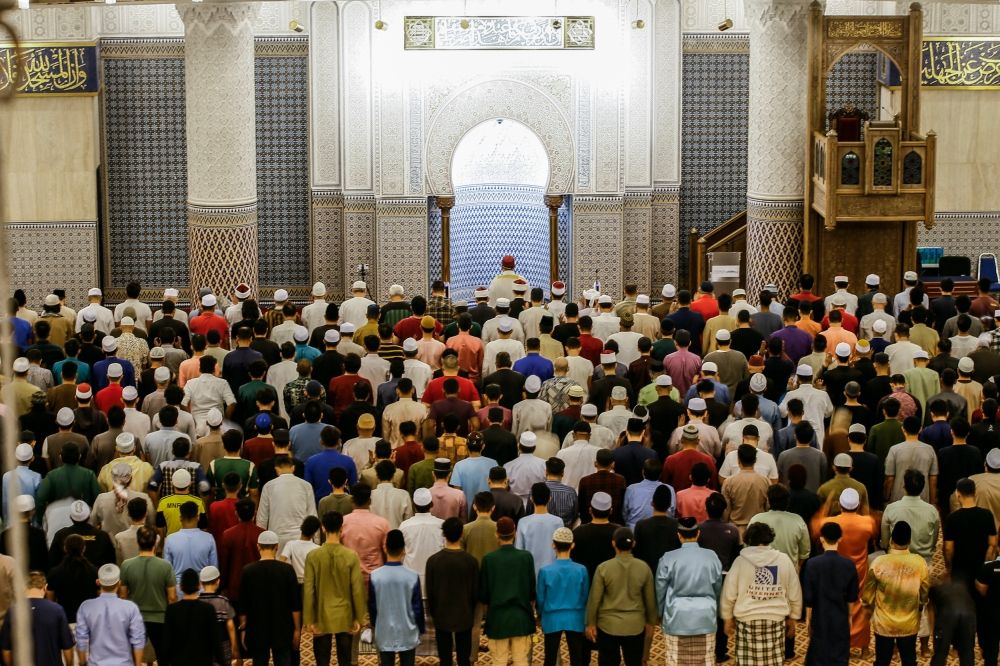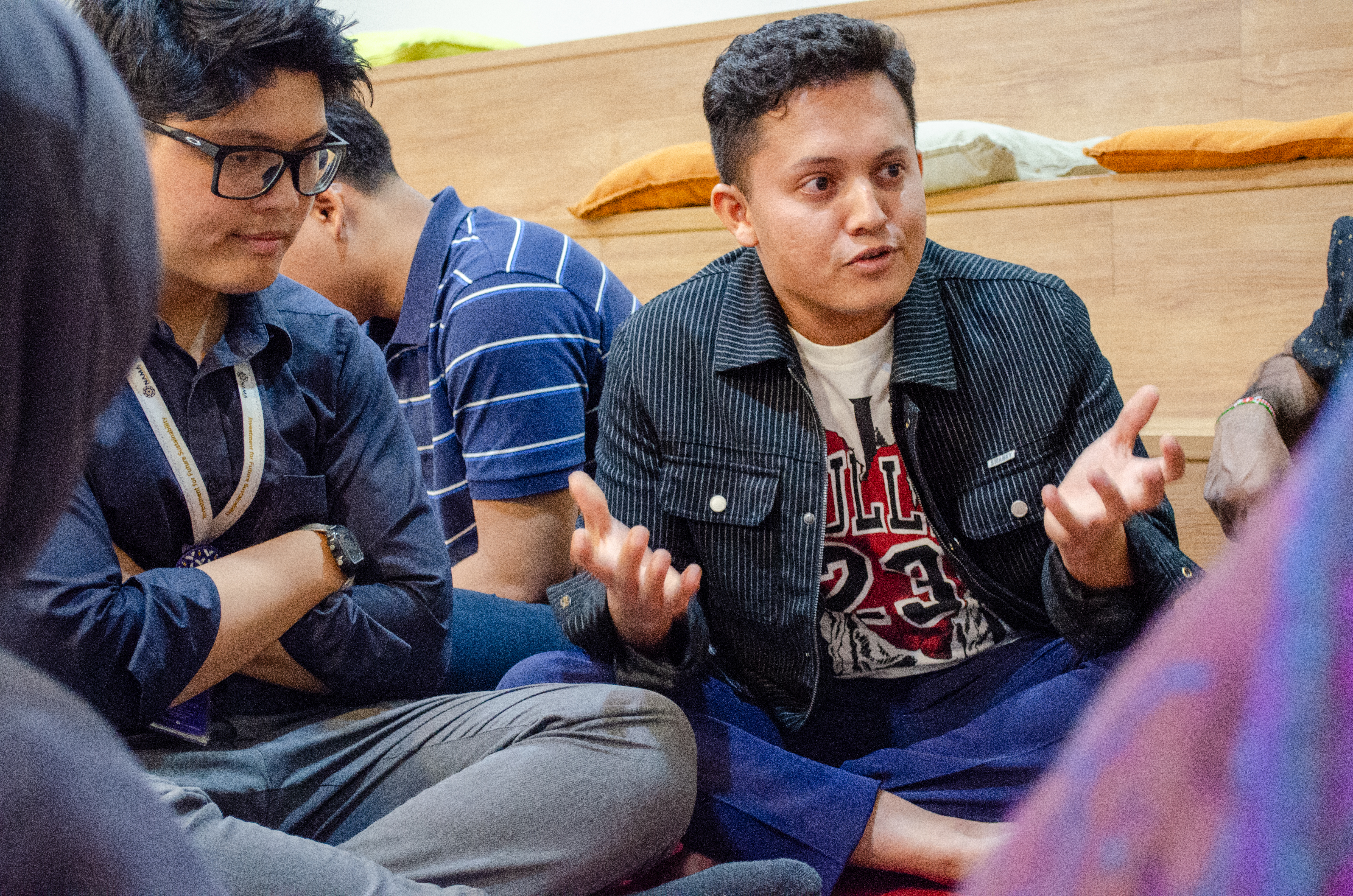"Why Won't You See Us?" — The Refugee Battle For Recognition In Malaysia
I didn't choose to be born to Rohingya parents in Rakhine State, Myanmar, where my family and I suffered unexplainable injustices for years.
A fearful start
I was born somewhere you may have heard of or perhaps from someone you hesitate to help or understand. I don't have the courage to introduce or mention my origin because I fear being rejected or ignored for how I look or where I came from.
But I can assure you of one thing: my blood and your blood are the same, even though we might have different skin colours.
Have you ever wished you could choose your parents?
Or have you ever wanted to be born in a specific place?
Let's keep it simple — did you decide to be born in Kuala Lumpur to Chinese or Malay parents, or did someone ask your permission to be born to Tamil ethnic parents?
I'm sure the answer is no, and for me, it's the same.
I didn't choose to be born to Rohingya parents in Rakhine State, Myanmar, where my family and I suffered unexplainable injustices for years. I have not experienced love or the smell of peace — I am a victim of neglect.
Fleeing for safety
In 2017, when I was sitting under a tree in my yard, the Myanmar military suddenly started shooting at my home and the surrounding area.
At first, I thought it was my friends playing with toy guns, but later, when I saw my neighbour auntie fall to the ground with blood coming out of her, I had no choice but to flee the country to a refugee camp in Bangladesh.
There, a lot of people made me feel like I belonged somewhere, but still, I didn't know where that somewhere was. I felt it should be the country I was born in, but later, I questioned: if it's mine, why are they chasing me and my people?
As a child during that time, I would question myself and find no answer. After staying for almost five years in the camp in Bangladesh, I was kidnapped by some illegal armed groups because of my writings that talked about the sufferings of Rohingya people living in Bangladesh under these groups.
Again, I questioned: where do I belong?
Although I was released in exchange for ransom, in search of the purpose of my existence, I boarded a boat with the hope of reaching a country where the majority are followers of Islam like me, where people protest for Palestine, where the government speaks out against injustices, and where even prime ministers have to serve time in jail for their crimes.
That country is Malaysia, known for its diverse culture, The Petronas Twin Towers, and, of course, amazing people. I entered this country as a scared young guy, leaving all my family members behind.
This country is unique — everyone likes to smile, whether they know you or not. When they smile at me, I feel accepted. But when I heard that the immigration department was looking for people like me — undocumented — I felt scared and regretted having hope of surviving somewhere where they talk about Palestinian issues but not about the Rohingya.
As time passed and I got registered with UNHCR, I started meeting Malaysians. Although we have language barriers, the impressive thing is that most of them understand English, and we communicate in English.
When I first came here, I felt fear, hope, and uncertainty, seeing that the majority of Malaysians don't have enough knowledge about Rohingya refugees. Some of them mistake us for Bangladeshis or economic migrants, and some ignore us or don't care, but some accept us with open arms.
File photo of a Rohingya family arriving at the Bangladesh border from Myanmar.
Image via Antonio Faccilongo/Doctors Without BordersThe struggles of refugee life in Malaysia
Navigating life as a refugee in Malaysia is hard, as there is very little direct support from the government. There is no law that allows me to work and study, which is why most of us end up working underpaid jobs.
For many employers, refugees become a profit because they can employ us with less salary, and nobody is there to question them for the exploitation. But as I mentioned before, some kind Malaysians don't let us fall. They share their food, places, and happiness, and that's what's holding refugees in Malaysia together.
Isn't it interesting how people are?
Some made me feel like I don't belong anywhere, and some make me feel like there's hope of getting what I want. It's natural — we have so many different types of human beings, and refugees are lucky to be around the good human beings in Malaysia. Many say it takes nothing to be kind, and that's true when I see Malaysian people being kind to us, even though they have their own struggles.
Even though I am not widely accepted here, there are some specific places where I feel accepted, and that's not in a government school, university, or workplace. These specific places are mosques.
When I go to pray, I feel accepted because I stand near people I don't know, or who don't belong to the same community, but we are praying to the same God. I am sure God doesn't discriminate against us, but sadly, it's people who divide each other based on skin colour, religion, and status.
Community and support networks
In my journey of rebuilding a life here in Malaysia, I have been fortunate enough to find support within various community networks.
One of the most significant of these is Fugee, an organisation that empowers and uplifts refugees. Through Fugee, I have not only found a sense of belonging but also an avenue to channel my voice and energy into advocacy and community work.
This network has been instrumental in helping me adjust to life in Malaysia, providing emotional support from its partner organisations and opportunities to engage in meaningful activities that give me a sense of purpose.
Because of Fugee, I believe in Malaysians — that there are people here who want to see me grow academically and professionally. These connections have allowed me to build friendships and relationships with people who understand the struggles refugees face, creating a small yet vital support system.
Personal growth and achievements
My experiences as a refugee have shaped me. They have made me stronger, kinder, and more determined to create change. One of my greatest accomplishments is advocating for refugees in different forums.
Public speaking — something I never thought I would do — helps me communicate our experiences and make a difference. I'm pursuing a degree in law to help my community and myself.
These achievements prove that I can help the world despite my challenges and background.
Challenges and resilience
Life as a refugee in Malaysia is filled with challenges. The lack of legal rights to work or study means that many of us are forced into low-paying jobs, where exploitation is uncontrolled, and opportunities for improvement are tight.
The fear of being detained or deported is a constant shadow over our lives. Sleeping with the fear of being detained at night hurts more than you can think of. Despite these obstacles, I have learnt to remain resilient.
My strength comes from knowing that every day I survive is a victory in itself. My experiences of overcoming these challenges, such as surviving with few resources or supporting others, have taught me perseverance and hope.
Vision for the future
My future goals are obvious. I want to fight for human rights worldwide, not just in Malaysia.
I want to work with international non-governmental organisations where I can contribute to policies and programmes that protect and empower displaced communities and victims of discrimination.
I want to finish school, and possibly get an LLB, so I can help others who have experienced trauma like mine. I hope the Rohingya people are recognised, appreciated, and allowed to live with dignity.
Sharing my story is the start of this journey and an opportunity to act.
A message of hope
While the journey has been heavy, it is not without hope. Malaysia, with its diverse culture and warm-hearted people, has provided a sanctuary, however imperfect, where we can rebuild our lives.
I am grateful for the kindness I have encountered here and the opportunities to contribute, even in small ways, to the society that has given me shelter.
My story is just one among many, and I hope it inspires others to see the humanity in all of us, regardless of where we come from or the circumstances that brought us here.
Together, we can build a better world where everyone, including refugees, can thrive.
I urge those reading this to continue supporting initiatives that help refugees and to remember that we, too, have dreams, aspirations, and a deep desire to contribute to the places that have given us hope.
Remember my blood and yours are the same.
Let us be part of your happiness. Let's make a safer world for everyone.
This story is part of the YouthSAYS initiative and is the personal opinion of the writer.
About the contributor:
Nur Sadek is an author and writer renowned for his work in highlighting the struggles of the Rohingya people, an ethnic minority facing severe persecution in Myanmar.
His books, Scars: Poetries of a Genocide Survivor and The Rohingya Warrior: A Youth's Journey of Survival and Hope, offer powerful insights into the resilience and suffering of the Rohingya community.
In Scars, Sadek uses poetry to depict the deep emotional and physical scars left by violence and displacement. The Rohingya Warrior combines memoir and storytelling to portray the harrowing journey of a young Rohingya individual navigating survival and hope amidst adversity.
Sadek's work is deeply personal, reflecting his own experiences and those of his community. His writings have played a crucial role in raising global awareness about the Rohingya crisis.
Are you a writer, thinker, or storyteller with a message to share?
Submit your thought pieces, articles, and creative writing for a chance to be published on SAYS. Click the image below for more information:



